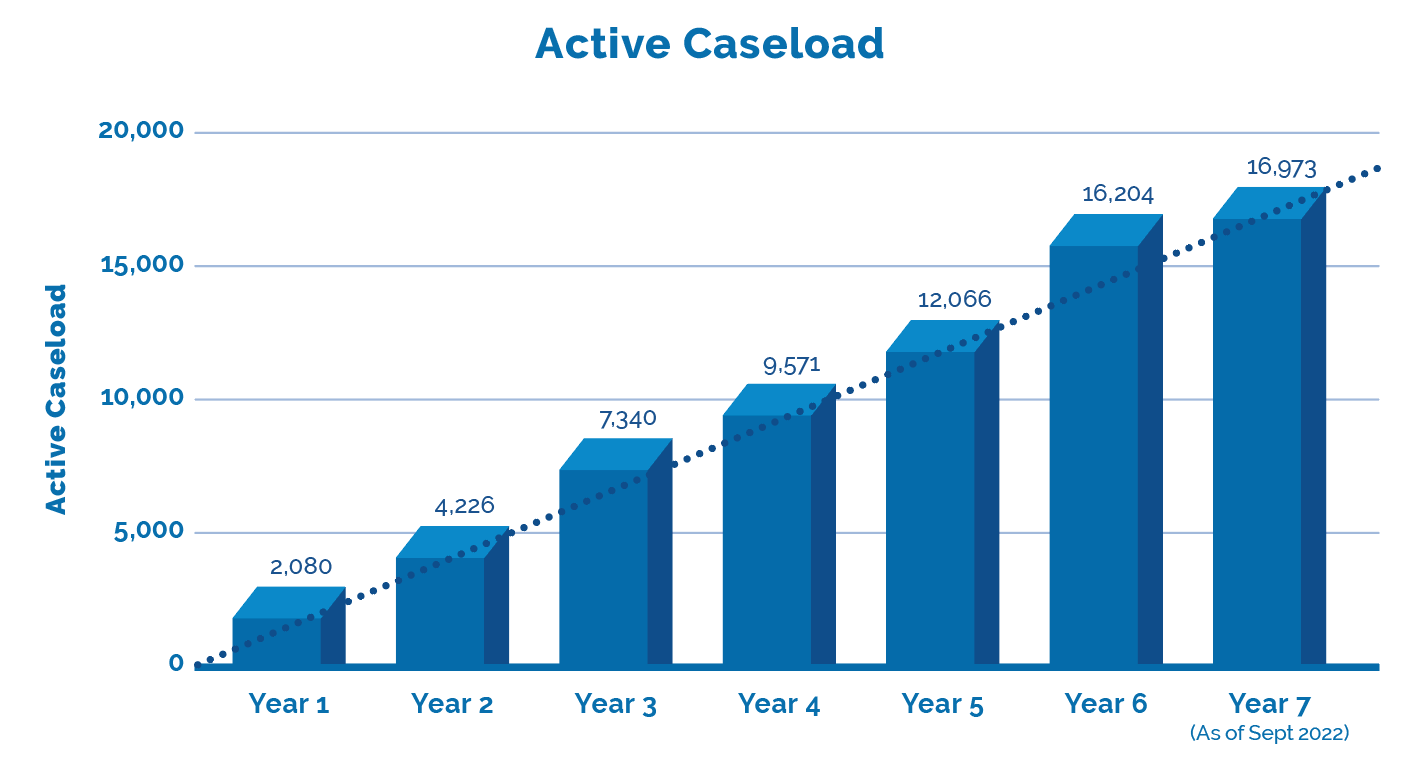
MIG Update – February 6, 2023
Chronic Pain versus Clinically Associated Sequelae
This week a MIG hold case, where the Tribunal acknowledges that although not incorporated into the schedule, the 6 criteria outlined in the AMA Guides for evaluating chronic pain are useful in assessing such.
LAT Update – What Difference Did A Year Make?

The LAT released Performance Stats up to mid-year 7 which is current through to the end of September 2022. Together with the LAT’s last update we can now provide a comparison of year over year, with projections through to the end of year 7 in this annual update. What difference did a year make?
Factor: Chronic Pain versus Clinically Associated Sequelae
In Hayes v. The Co-Operators (20-012245), Rachel Hayes was injured on July 8, 2017 after losing control of her motorcycle that reportedly fell over onto her. She sought removal from the MIG on the basis of chronic pain and the need for phsyiotherapy.
Hayes relied on an April 16, 2019 ultrasound of her right shoulder which indicated possibly tendinosis or perhaps articular side fraying/low grade tearing but no full-thickness tear.
Hayes also relied on the CNRs of Sports Medicine Specialist Dr. R. Arbeau that she has required repeat cortisone injections for her shoulder, and it was not a minor injury and continued to affect her quality of life and ability to work. Hayes also relied on Family Physician Dr. P. Dzongowski’s CNRs where he noted pain in her right knee and right shoulder to be treated symptomatically.
Co-operators submitted that Hayes failed to provide sufficient evidence of functional impairment or disability. Further, that these injuries fall within the defined minor injuries under the schedule.
They relied on an October 25, 2018 IE Report provided by Physiatrist Dr. J. Clifford, who opined that Haye’s pain complaints were due to deconditioning, recommended imaging of the right shoulder and right knee to rule out anything more serious. Subsequent imaging showed possible low-grade tendon tear in the right shoulder, and trace fluid on the right knee.
The Tribunal found:
- Hayes, while continuing to complain of pain in the years following the accident, her treating practitioners’ CNRs, diagnostic imaging, and Insurer’s Examination report did not establish disabling pain or functional limitation.
- Although the AMA Guides do not form part of the schedule, they are useful in assessing chronic pain. In this case ‘nothing in the applicant’s evidence establishes that, as a result of the accident, she: developed a dependency on prescription drugs or other substances; became dependent on others; experienced deconditioning due to disuse and or fear-avoidance of physical activity due to pain; withdrew from social contacts; was incapable of pursuing work, family or recreational needs; or, had any psychosocial sequelae.”
- The partial tendon tear in the right shoulder was considered to be within the MIG’s definition of “sprain.”
- “In short, the totality of the evidence establishes that the applicant’s injuries and clinically associated sequelae are within the MIG.
If you Have Read This Far…
Our MIG Monday series discusses the multitude of factors to consider when evaluating a risk position on MIG cases. The Tribunal has ruled on the MIG in 24% of the decisions so far. Each case is nuanced, but with similar factors.
Inform your position & present persuasive arguments. Include an Outcome Analysis Report (OAR) in your case evaluation complete with For/Against cases. Need an OAR?
inHEALTH Keeps you LAT inFORMED With Access To:
1. LAT Compendium Database – a relational database of LAT and Divisional Court Decisions equipped with multiple search options, Smart Filters, and concise case summaries
2. Notifications: – weekly LAT inFORMER delivered to your inbox Wednesdays; Newly Added Decisions on Fridays and Breaking News as and when it happens
3. Research Support: – inHEALTH’s Live Chat Experts for guided searches and technical inquiries.
Sign up for a 14 day free trial below to experience the service and see how it can help guide your decision making.
